Most days, us Canadians get the e-book shaft. Barnes & Noble won’t sell to us. Amazon will, but at higher prices and with less selection. We’re the forgotten child of the e-book world—with the exception of January 1, aka New Year’s Day, aka Public Domain Day, when countries that calculate the length of an author’s copyright based on the year an artist dies get access to a whole bunch of new entrants.
Here in Canada, a glorious (for now) life + 50 land, authors whose death occurred in 1963 are now part of the public domain. In Australia and other life + 70 countries, 1943 is the magic year. And in the United States? Thanks to Walt Disney and Sonny Bono and the Copyright Extension Act you get nothing.
I find this horrifying. I am all for content creators getting fair compensation for their work, but I don’t think their copyright over it should last forever, and here’s why: No work of creativity is created in a vacuum. Authors and artists always draw, even if it’s only subconsciously, on works that came before. And in the case of Disney, he did so overtly. The story of Cinderella was in the public domain. So was the story of the Little Mermaid, Beauty and the Beast, Pocahontas and the Hunchback of Notre Dame. So, if Disney was allowed to draw upon the work of others, why should others not be allowed to draw upon his work someday? Why should Disney’s hunchback film not (eventually, not right now) enter into the public domain the same way Victor Hugo’s novel did?
The concept of the public domain, as it was conceived originally, was two-fold. It was designed to protect authors, but it was also designed to encourage the creation of new works. If you knew your exclusive right over something would expire someday (as it should, since it was more of a group effort than you might consciously think), you would be inspired to create new works. And also, it was designed to serve the public interest by making sure that humanity had a common pool of culture they could draw upon. The Disney Company didn’t need the long-dead Hugo’s permission to make their hunchback movie. And on a smaller scale, we should be able to teach our children about the myths, fables and enduring literatures of their culture without paying the great-great-great grandson of a content creator who has been dead for a lifetime.
Here in Canada, we seem to be holding the line on life + 50 right now. Other countries have bowed to American pressures and seen that go up to life + 70, but even those countries are sticking firm to the underlying principle of life plus something, and then no more.That’s as it should be. Lucy Maud Montgomery, who just entered the public domain in life + 70 countries, died in 1942. Whom are we protecting by keeping her out of the public domain in the United States? What possible interest is being served by that?
I guess Americans are stuck with this copyright extension act for the time being, but I hope that when it comes up for review, lawmakers there think beyond the corporate self-interest of one company and return to a more balanced and equitable use of creative properties where, for a time—even a long time—the author and their heirs can profit as they should. But then the work should enter the public domain to be used and enjoyed by the culture that helped to create it.
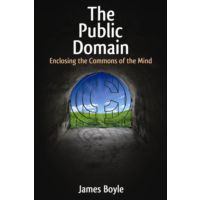 Note: To learn more about the public domain, read Professor James Boyle’s book The Public Domain: Enclosing the Commons of the Mind (Yale University Press, 2008) — the full text is available for free here.
Note: To learn more about the public domain, read Professor James Boyle’s book The Public Domain: Enclosing the Commons of the Mind (Yale University Press, 2008) — the full text is available for free here.


















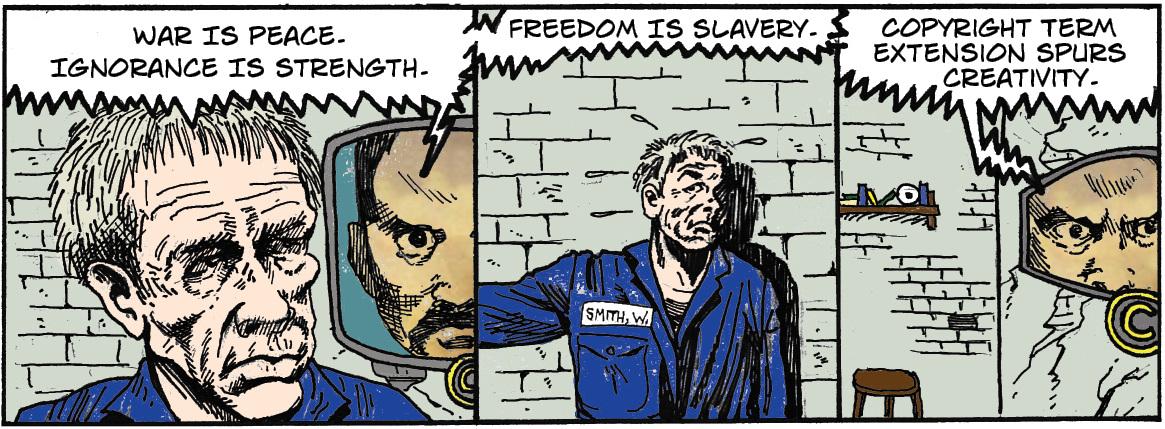
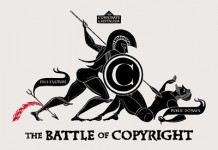
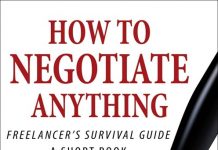


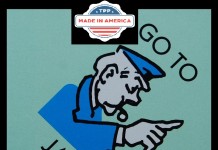










Yeah… I’m sorry, but I refuse to accept copyright as it stands right now. Here’s my suggestion:
automatic copyright for 2 years after the publication + copyright for 10 years if you register your work
Because no one stops you from making money on your work even when it’s in public domain. It just doesn’t prevent others from doing the same. And seriously, how many books do you buy from 2002? How many films make any significant money after 1 year?
Of course, this is just an empty dream, but I can still dream, right?
As long as I don’t dream about Mickey Mouse, I suppose.
Trust me, Biri – you do *not* want to dream about Mickey Mouse. Walt & Friends will have a lien on your frontal cortex before you even exit your REM cycle. For real.
Since this article shows such a misunderstanding of what can and can’t be copyrighted, here is a repeat of an article I wrote on this subject.
One of the common reasons copyright foes give for the evils of long copyright or any form of copyright is that it stifles creativity.
Is this true?
My own feeling is that it doesn’t, particularly in fiction.
WHAT COPYRIGHT DOES AND DOESN’T COVER
Many don’t understand what copyright covers. They think the ideas within a story are copyrighted. They aren’t. Anyone can write a story about angst-filled vampires and the girls who love them, and many have, but if you write and sell a vampire story where the vampires glitter, the main characters are Edward and Belle, and the plot and setting are very similar to the TWILIGHT series, you can expect a call from Stephenie Meyer’s lawyers.
Any story or idea from other authors or sources can be used by an author as long as she makes the idea her own with her own characters, setting, and plot. I have read a CAPTAIN BLOOD retelling as an historical romance, a Klingons-in-love STAR TREK inspired futuristic romance, and a paranormal romance that billed itself as HARRY POTTER for grownups. None of these authors were sued for copyright infringement because they added enough of their own ideas to create something different.
A GOOD IDEA ISN’T HARD TO FIND
Those who aren’t creative believe that it’s hard coming up with new ideas for stories. If you ask any author, she’ll tell you that new ideas aren’t the problem; the problem is having enough time to use all those wonderful ideas to write books. Ideas are a dime a dozen, but writing time is priceless.
DO BOOKS OUT OF COPYRIGHT ENRICH OUR CULTURE BY INSPIRING AUTHORS?
But what of those novels and stories which have gone out of copyright? Have they enriched the culture by spawning sequels that will be remembered forever?
I’ve read, among many others, sequels to THE SCARLET LETTER, DOCTOR JEKYL AND MR. HYDE, several of Jane Austin’s novels, MOBY DICK, and none were worthy literary successors, won awards, or remained in print more than a few years.
The only novel I could think of that has been a sequel/prequel and a literary success, as well as having more than a few months of fame, is WICKED by Gregory Maguire which is about the Wicked Witch in THE WIZARD OF OZ.
The only true value most of these sequel books have, from a publisher and author’s perspective, is as a marketing hook.
If any of the sequel novels I’ve read didn’t have that instant recognition of THE SCARLET LETTER from the villain’s perspective or DR. JEKYL from the maid’s perspective, they probably wouldn’t have been published, and they certainly wouldn’t have had as many people buying them.
I know I will read any book that has Sherlock Holmes as a character even though most are poorly written and are certainly no compliment to Arthur Conan Doyle. If that same book was about a Victorian detective, I doubt I would read it, and unless it was by an established author, few publishers would publish it.
The use of classics as mashups is not what I’d call a value to society either. Vampires inserted into Jane Austin’s novels, or erotic sex in JANE EYRE does nothing except allow hacks and jerks to besmirch great literature.
WHAT IS THE VALUE OF SHORTENING COPYRIGHT?
So, what is the value of shortening copyright? None that I see except for free books, and you can read most books for free from the library.
Society almost never profits from a book out of copyright, and most of those who write the sequels create inferior books which have famous marketing hooks rather than literary value.
OTHER ARTICLES ON COPYRIGHT:
“Disney and Copyright,” Is it really the public’s best interest for Disney’s old cartoons to go into public domain? http://mbyerly.blogspot.com/2011/05/disney-and-copyright.html
“A Reader’s Guide to Copyright,” A simple explanation of what copyright is and what the reader needs to know.
http://mbyerly.blogspot.com/2009/03/readers-guide-to-copyright.html
“The First Sale Doctrine and Ebooks,” Is it legal to resell or share an ebook?
http://mbyerly.blogspot.com/2009/04/first-sale-doctrine-and-ebooks.html
“The Death of Copyright,” What would happen if copyright was abolished as some copyright opponents desire?
http://mbyerly.blogspot.com/2009/04/death-of-copyright.html
Biri must not be a writer. Most authors struggle to make ends meet already. A two or ten year copyright term would have many of them living in dumpsters. It’d be particularly cruel for new writers, since their books might take several years to take off.
Short copyright terms would have been less troublesome twenty years ago, when most books dropped out of print after a few years. But today, when print-on-demand and digital can keep a book in print forever at little or not cost, they’re very unfair to authors, who need to income from prior books to keep a roof over their head while they write others.
My own sense is that the traditional life plus 50 years makes the most sense. It takes care of the author and his or her spouse throughout both their lives in almost every case and, if the author dies young, it takes care of children. I also think it’s great that the family can protect an author’s works from ‘it’s in the public domain now so we can do anything’ exploitation for a major period of time. A work that’s still being read after that long is a work whose fans will find was to punish crude movie exploitations. Any viable copyright system has to take into account that Hollywood is filled with tasteless, greedy SOBs.
But along with life-plus base law comes the necessity of having some way to know when even obscure authors died. For books, that can be hard. For magazine articles, it can be almost impossible. One of my gripes about the Berne Convention is that it seems to be written almost exclusively for famous authors whose estates will be managed after their deaths. Copyright needs to include registration and tracking. Much of the chatter about ‘orphan works’ is just a ploy by Google et al to attack copyright. But it is still true that any really effective system of copyright should come with a requirement for registering contact information and probating it in wills.
And the ‘who to contact’ problem is one reason why date-of-publication terms make sense. Under them, those wanting to republish a work can know when a work enters the public domain. You can’t know that in life-plus countries unless you know the author’s biographical details. And in an era when almost anyone can publish easily, that’s becoming more complicated.
–Michael W. Perry, author of Hospital Gowns and Other Embarrassments
You’re off by a year. January 2013 turns into authors died in 1942 and 1962. The works enter the public domain the January of the year after the author dies in Canada and most other life+ countries.
That’s true. I am not a writer. But I don’t see why I should treat them any differently from the rest of us. I worked in constructions for a while. Where’s my new paychecks every time someone uses the house I helped build? Yeah, okay, maybe there wouldn’t be as many published writers. So what?
Marilynn, just because you personally don’t like sequels and literary mash ups, it doesn’t mean they don’t have value to others and should not be permitted. To me, the value of the public domain is less in vampire mash ups and more in stuff like sequels (Wicked, Wide Sargasso Sea, The Seven Per Cent Solution and so on) and in transformative works like movies. As I said, Disney didn’t have to pay Victor Hugo’s heirs. And why should they when Hugo has been dead for more than a century? I just feel that the fair trade off for Disney getting that privilege should be that others can someday have that same privilege on them. Disney’s film version of Victor Hugo’s book should one day be open to the same liberty they themselves took. That is the social contract of the public domain. You drew from others, and some day (not necessarily soon, but some day) they should be able to draw from you.
While the Disney copyright laws are pure money grabs, IMHO, and should probably be more in line with Canada, I do think most of the complaints about works not going public domain are from those who don’t want a pony up a few bucks and buy the book. I would also say creativity is more likely to be stifled if authors keep reusing old characters and settings. If an author wants to write a Sherlock Holmes story, that’s not creativity, that rehashing.
Copyright does not exist in order to serve the financial wants and desires of authors, their spouses, their relatives and their extended family.
Copyright exists to serve the public interest. Or, at least, that was the original idea.
There are literally millions of scholarly and scientific works that are locked up by long-term copyright and essentially inaccessible to the public. There’s no money to be made in publishing them but rights holders never release anything into the public domain voluntarily.
We have extended the term of copyright beyond any remotely reasonable level. Originally it was 14 years with an optional 14 year extension. But now corporate sponsored copyright power grabs by big moneyed interests means that everything created in our lifetime is locked up in copyright until long after we are dead.
These forums tend to be filled with wannabe authors who shill for maximal copyright because they imagine that their 2nd rate romance novels or vampire sagas are going to someday bring in riches. They are blind to the amount of human knowledge that is locked up behind copyright and closed off to society.
H.P. Lovecraft’s cthulhu mythos is the scaffolding for much of the work of Thomas Ligotti, arguably the greatest living horror writer.
The work of one writer like Ligotti justifies the existence of an infinite amount of lesser riffs.
Biri, if you paid me minimum wage just for the hours spent at the keyboard producing a novel and didn’t add in the cost of education, materials, business costs, etc., you would owe me over $100,000 just for STAR-CROSSED alone. I am a very fast writer so you would be getting off cheap in comparison to most writers.
Unlike a construction worker, authors don’t get a regular paycheck while we are writing a novel, and we often have to wait years to see any money, let alone a profit above expenses. Few of us will ever make enough money to equal a salary at minimum wage for what we wrote. The money we do see will come in six month to a year spurts with no guarantee that any money will come.
So, yes, a writer’s financial life is very different from someone with a standard job.
Binko, you can’t compete with me intellectually on the subject so you call me names. I am so not impressed or upset.